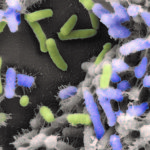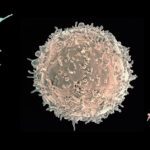About
Alterations of the gut microbiota are associated with numerous diseases, of which many involve impaired immune tolerance, such as allergies. However, the role of specific microorganisms and underlying molecular mechanisms remain poorly characterised. Archaeal methanogens and the bacterial genus Veillonella are understudied microorganisms of the gut, which possess unique cell structures and metabolism among members of the microbiota. Both microorganisms have been shown to reduce the risk of developing asthma, yet there is a gap of knowledge on how they interact with the host immune responses and its overall physiology. Here, we hypothesize that the methanogen M. smithii (Ms) and the bacteria V. parvula (Vp), are model species with crucial roles in tuning the intestinal mucosa homeostasis and controlling peripheral inflammation, as in allergic asthma. To address this hypothesis, we will first study Ms and Vp physical interactions with the host intestinal cells and characterize their functional impacts. In the second part of the project, we will dissect the crosstalk between Ms and Vp and the host physiology as well as the immune system of the intestinal mucosa. Finally, we will examine how the presence of Ms and Vp in a defined microbiota affects, in vivo, the host homeostasis and immune response in the context of health and allergic asthma. By combining the skills of three laboratories, we will employ an innovative and multidisciplinary approach, which will result in novel basic knowledge on the direct effect of methanogens and Veillonella on the host mucosa, and we will characterise the mechanisms involved. In addition, the project will reveal the potential causality between the presence of these microorganisms and host health, opening new possibilities of precise gut microbiota manipulations in the perspective of preventing and treating diseases.











